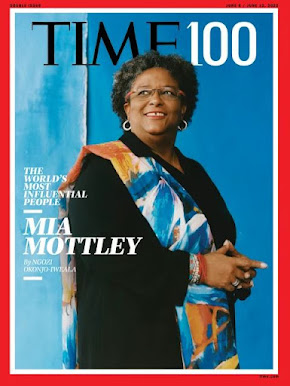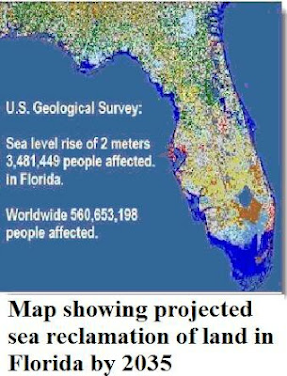That Prime Minister Mia Mottley of Barbados is a veritable firebrand in the battle against climate change has now been well established following her appearance on a TIME regional cover. Not to mention her various appearances, speeches before the UN, e.g.:
UNGA76 General Debate: Prime Minister of Barbados
where she thunderously proclaimed:
"We are waiting, waiting for global moral strategic leadership.
How many more crises need to hit before we see that the international system divides, not lifts?”
And who - at least among Bajans and those Americans who follow Mottley - can forget her fiery criticism of rich nations in her "World at a fork in the road" speech at COP 26? Then this year at COP 27, Mia followed up her viral COP 26 speech with a proposal that may finally be what's needed to rescue poor nations on the front lines of the climate crisis. This is in the form of the "Bridgetown Agenda" named after Barbados capital city.
What is so striking and bold about the Bridgetown Agenda is its call for an overhaul of the World Bank (including getting rid of David Malpass, the Trump-appointed WB president) and revamping the IMF and ands goals. Citing the onerous debt crisis spawned by the pandemic Mottley's Bridgetown Agenda would suspend all IMF debt repayments for the poore4st nations - currently being hit with 12-14% interest.
This is, as Mottley noted, totally unsustainable as well as bloody unfair when the poorest countries are on the front lines fighting climate change and the runaway Greenhouse. At the same time, Mottley's proposal calls for $650 billion in emergency liquidity and for development banks to issue $1 trillion in low interest loans which would be for climate spending and investment in poor nations. This makes eminent sense, think about it. If such monies and loans are made available these small, embattled nations may escape rising sea levels or major storm effects - and not have millions of their people becoming climate refugees. Refugees who would surely swarm onto the borders of Europe and the U.S.
The Bridgetown Agenda states:
"Most climate-vulnerable countries do not have the fiscal space to adopt new debt. We must move beyond country-by-country responses that have become bogged down by issues of who should do more. Instead, new multilateral institutions are needed for raising reconstruction grants for any country imperiled by a climate disaster."
An interesting aspect is that this novel approach would essentially dismantle the framework of the Bretton Woods Agreement in place since 1944. Is that a terrible price to pay? Not if it spares the humans on this planet from the looming climate catastrophe! Especially the most impoverished and vulnerable with the least resources to survive.
Especially if one grasps that Bretton Woods was decided by a minority of rich white nations nearly 80 years ago, with disastrous results. In addition, it was decided at a time climate ravages weren't even on the radar. In fact it would be some 30 more years before the first alarm bells over climate would be published, e.g. in the (1974) World Book Science Yearbook which featured this graphic map concerning sea level rise effects on Florida by 2035:
The other factor, apart from overhauling Bretton Woods, is remaking the World Bank and ditching its president, Malpass. Why do this? Because the man is a confirmed nincompoop. While appearing on a NY Times climate panel he was asked if he agreed that the burning of fossil fuels was warming the planet. He refused to answer the question several times before saying: "I don't know the answer, I'm not a scientist!" But you don't need to be a scientist, only a bit more well read than a four year old!
Thus, we know Mia (as well as Al Gore) is correct that climate change is no priority for Malpass, and it that's true it's no priority for the World Bank. So there'd be no incentive to assist in the implementation of the Bridgetown Agenda which may be the last best hope to spare the poor nations of the planet the worst ravages of climate change.
See Also:


No comments:
Post a Comment